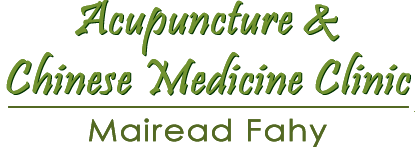IVF cannot turn back the biological clock!
Working women are leaving it too late to have children because they wrongly believe that ivf clinics can restore their fertility at any age, a leading academic has warned.
Women cannot simply rewind their ‘biological clock’ and easily have a baby later in life, the expert says.
A new study warns that becoming pregnant relatively later in life leaves mature mothers-to-be facing a higher risk of pregnancy loss, birth defects and other complications.
Women may delay pregnancy in their most fertile years for a variety of reasons, such as focusing on careers, lack of financial stability or not having a partner.
They are vaguely aware that fertility decreases with age, but it is only when they experience age-related infertility first-hand that they realise the reality of their situation, according to academics.
Dr Pasquale Patrizio, of the Yale School of Medicine in the United States, said the problem is increased due to images of celebrities who seem to effortlessly give birth at advanced ages
He said: “There is an alarming misconception about fertility among women.
“We also found a lack of knowledge about steps women can take early in their reproductive years to preserve the possibility of conception later in life.”
The research stemmed from the observations Dr Patrizio and colleagues made that more women are coming to the fertility clinic at age 43 or older expecting that pregnancy can be instantly achieved – and are disappointed to learn it is cannot be done easily.
He added: “We are really seeing more and more patients ‘upset’ after failing in having their own biological child after age 43 so we had to report on this.
“Their typical reaction is, ‘what do you mean you cannot help me? I am healthy, I exercise, and I cannot have my own baby?’
Even though the number of women turning to ART {Assisted Reproductive Therapy] has increased, the number of IVF cycles resulting in pregnancy in women above age 42 mostly remained static at nine per cent in 2009.
If pregnancy is achieved at an older age, women then face higher risk of pregnancy loss, birth defects, and other complications.
“As clinicians, we should begin educating women more aggressively. Women should be given the appropriate information about postponing fertility, obstetric risks, and the limited success of ART in advanced age to allow them to make informed decisions about when, if at all, they hope to become pregnant.”
Dr Patrizio said that one of the techniques women should take advantage of is oocyte (egg) freezing, which appears to be the best strategy for women who want to postpone motherhood but really care about having a child with their own genetic material.
Alternative options such as egg donation, which leads to the highest pregnancy rates reported for any ART method, are also available.
He added: “There is an urgent need to educate women that reproductive aging is irreversible and, more importantly that there are options to safeguard against he risk of future infertility.”
These techniques are valid options for women and should not be viewed as experimental.
“Doctors and health professionals must begin the discussion about fertility preservation in their patients and make certain that young women truly understand all their options.”
According to the Society for Assisted Reproductive Technologies, the number of in-vitro fertilisation (IVF) cycles performed for women under age 35 increased by about nine per cent between 2003 and 2009.
During this same time period, the number of IVF cycles performed for women aged 41 and older increased by 41%. But this procedure doesn’t always result in success.
The findings were published in the journal Fertility and Sterilit

 Infertility in all its guises has long been an emotive and complicated issue for many couples, and with many couples now deciding to postpone starting a family because of lifestyle and / or financial reasons; infertility has become an increasingly prevalent problem of contemporary society.
Infertility in all its guises has long been an emotive and complicated issue for many couples, and with many couples now deciding to postpone starting a family because of lifestyle and / or financial reasons; infertility has become an increasingly prevalent problem of contemporary society. Chinese Medicine has been treating infertility for over two and a half thousand years, and its effectiveness cannot be underestimated. Its main function is to bring the body back into balance in every way, harmonising Yin, Yang, Qi and Blood and because of this it can therefore:
Chinese Medicine has been treating infertility for over two and a half thousand years, and its effectiveness cannot be underestimated. Its main function is to bring the body back into balance in every way, harmonising Yin, Yang, Qi and Blood and because of this it can therefore: